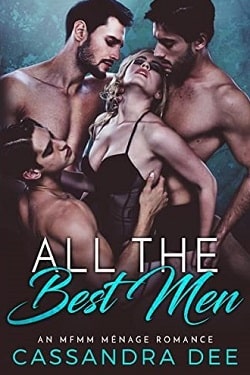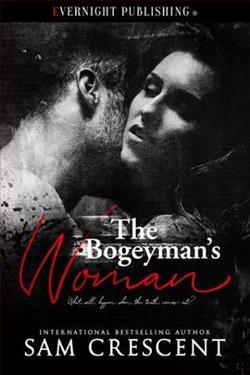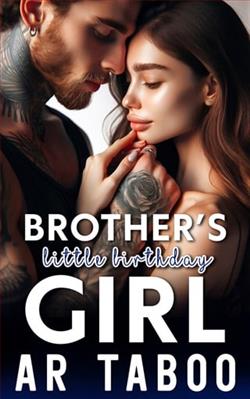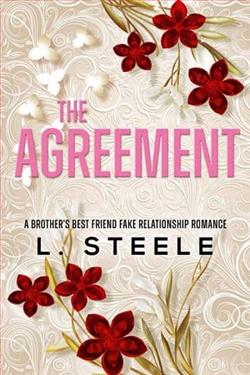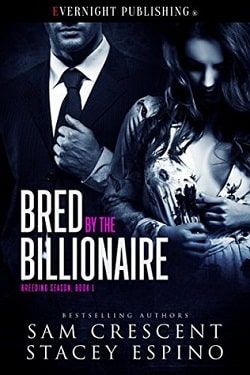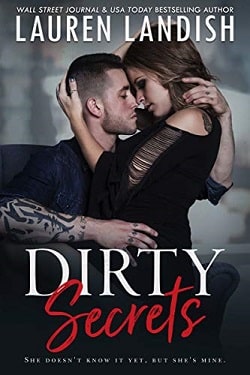Page 21 of What Happened to Lucy Vale
“That’s great,” Marc said. The weight of what had happened at Lucy’s old school hung temporarily between them. Then Marc cleared his throat. “I’ve got an update on those ARCs. Good news is, they’ll be ready in time for sales conference ...”
They chatted a bit and then said their goodbyes, leaving the topic of Rachel’s next book untouched. After they hung up, she stood for a while, running a finger over the trace impression cut into the glass. Someone had gouged several hard lines through the initials, as if in regret for putting them there. Was it Nina? Her mother? Or Tommy himself?
She roused and turned her attention to the miscellany of junk that had been left undisturbed in the attic for God knows how long. She doubted any of it had belonged to the Faradays, the last legal tenants, so far as she knew. More likely a generation of squatters and trespassers, junkies and ghost hunters, had wound their way up these stairs. At least there was no graffiti disturbing the old wooden beams and the rafters, mossy with spiderwebs. It would be a handsome room—an aerie of sorts—once it was scrubbed and sanitized.
She put on a mask and a pair of old gloves and began filling trash bags. The floor was covered in old newspaper, all of it hopelessly spottedwith mouse turds. A festering mattress was gutting springs onto the floor. There were cardboard boxes, too, stacked around the room, slowly disintegrating into pulp. She opened one and saw more mouse turds covering a haphazard pile of old paperbacks. All of it would have to go down to the dumpster.
Up and down the stairs she went, sweating freely in her mask until it felt clammy on her skin. The whole time her mind kept pinging between Lucy at her first social event and Nina Faraday standing at the attic window, holding a penknife in her hand, eking out the initials of the boy she loved—then, at some point, furiously crossing them out.
It’s always the same story with a few modern updates,Marc had said when Rachel told him about Lucy and her old school, all her problems the previous year.It always comes down to a boy.
A simple, and not entirely accurate, assessment. But there was some truth to it.
Rachel wondered whether there had been some truth to it for Nina Faraday too.
Fifteen
We
Whether or not Lucy was pretty, hot, beautiful, or some or none or all of the above was a matter of furious debate. After the party, we argued about the most basic facts of her appearance. Her hair might have been mousy brown, or dirty blond, or auburn. The wordcaramelwas thrown around pretty freely.
We couldn’t agree, it turned out, on even her basic physical characteristics. Allan Meeks, five foot four and one of the shortest boys in our class, swore Lucy Vale was even shorter than him and threatened to measure her to prove it. But most of us thought Lucy Vale looked average, and the Hannah Smith who played soccer swore that Lucy Vale was at least five eight. It was the same with her eye color, which varied between brown and hazel, the color of honey and the look of cheap weed, depending on who was reporting on it.
We tried to deconstruct Lucy’s face, to triangulate the symmetries, to understand them, without success. When Spinnaker pointed out that her nose was a little too short for her face, and her ears a little too large, we couldn’t disagree factually. Although we disagreed with what it implied: that Lucy Vale had flaws.
Some of us thought Lucy was a dead ringer for Jade Goodwin, the model who’d gotten her start parodying runway shows onTikTok. After the party, Brent Manning made a composite image of legendary twentieth-century beauties such as Marilyn Monroe, Audrey Hepburn, and Gisele Bündchen to prove that Lucy’s features corresponded perfectly to a recognizable Western standard of female perfection. The experiment was flawed. The composite image looked like a creepy CPR mannequin, or a doll that might be possessed, and it launched an enormous argument about racist beauty standards and the twentieth-century American eugenics movement.
Point was, Lucy didn’t look at all satanic. At least we could all agree on that.
Otherwise, there was no consensus. Peyton Neely, for example, insisted that Lucy looked exactly like a white-tailed mongoose.
@badprincess:WTF is a white-tailed mongoose?
Peyton Neely posted a link to the mongoose’s Wikipedia entry to the “New Girl” Discord channel. We were skeptical. Mongooses looked just like ferrets. Peyton Neely thought Lucy looked like a ferret?
@geminirising:No. I think she looks like a mongoose.
@geminirising:Do you not see it?
@mememeup:dude
@mememeup:Put a mongoose and a ferret in a police lineup, and there’s no way anyone could tell the difference
@geminirising:why would you need a ferret or a mongoose in a police lineup?
@geminirising:They’re different species. You could just take DNA samples
She had a point. But we all felt that if Peyton really thought Lucy looked like a ferret, she should have the balls to say so, not get sneaky with euphemistic mammals.
The first hour of the party was as awkward as the average cafeteria lunch. Sofia Young’s house had been emptied by Mr. Young’s departure, and we wandered the living room idly and filtered onto the deck, studiously ignoring all the missing family portraits and furniture. We were thrilled, and alarmed, to see everybody from the server in real life—none of us could remember inviting or approving Sean Douglas, for example—and we quickly knotted into groups and subgroups, collecting like lint around the fabric of our usual social sets. The anime heads and the gamers got into heated debates about manga we’d never heard of. The band and orchestra geeks dominated the chip bowl. The chorus and drama crowd swapped TikTok favorites and threatened to rope us into a video.
It was a relief when Nick Topornycky showed up with Sahara Richards and, more importantly, beer. Slowly we coalesced under its liquid power, and the novelty of awaiting the tenant of the Faraday House. The mystery had come alive for us again, animated by new blood. Kyle Hannigan asked Olivia Howard whether Brian, the creep who lived on her family’s commune, had ever spoken about how the sheriff’s office had considered him a suspect in Nina’s disappearance. Olivia told us that (a) Brian wasn’t a creep, (b) her family lived on a farm collaborative, not a commune, and (c) she’d never asked him because it was none of her business.
Nick pointed out that minding your business didn’t seem verycollaborative.
Before Olivia could respond, Sofia Young trumpeted,She’s here.
A sudden crush of movement drove us to the front patio, where we waited, frozen and breathless, to catch our first glimpse of the new girl.








